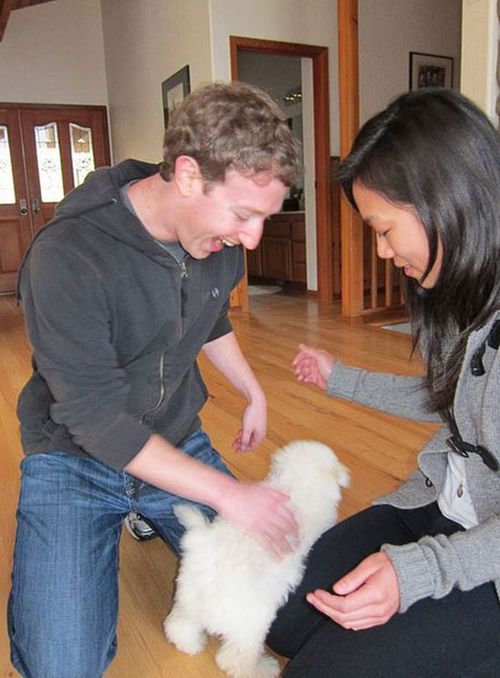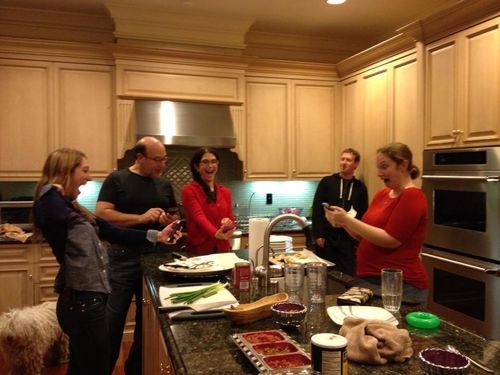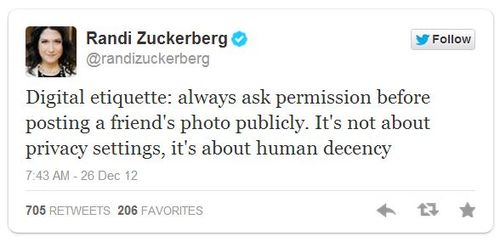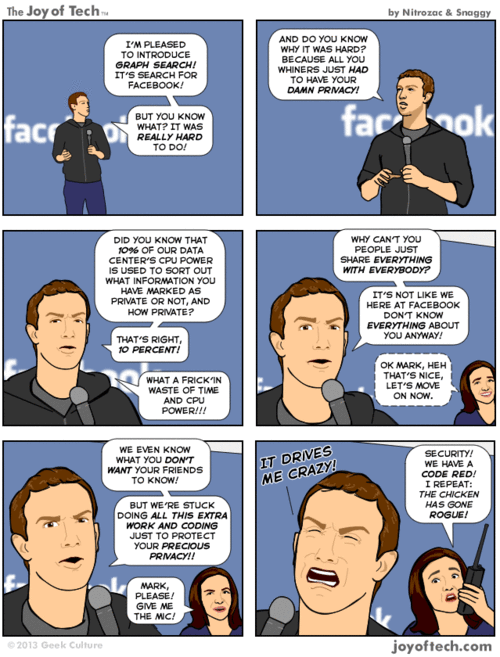
Building upon the theme that you cannot have privacy, even
if you are a cybercriminal or cybersecurity expert, you cannot have privacy if you are a social media aficionado.
And no greater illustration of the social media aficionado
is there than Mark Zuckerburg, uberfacebook leader of the world.
A man with over a billion followers, and a man with over a billion
dollars.
You would think that a social media billionaire could keep
things secret … but no.
Zuckerberg is the leakiest person I know.
Almost every other day, I find there’s another batch of dirge
on Zuckerberg that was meant to be private and has now become public.
The first batch I found via Gawker in 2009:
Facebook
controversially forced profile pictures into public and pushed users to share
candids with the whole world ... as a result of it,
Mark Zuckerberg has gone from sharing very little of his personal Facebook
content with the public to sharing a whole lot. Where the public could see just one photo of the Facebook co-founder
in October, strangers now have access to a cache of 290 shots.

This was followed last year when the
Telegraph and other media leaked lots of private Zuckerbag pics due to a major flaw in
Facebook's privacy system.

Then Facebook buys Instagram, primarily as a snub against
Twitter, and lo and behold we see Marks’ sister, Randi Zuckbag, mad as hell that her private pictures are being
leaked.

This was a Christmas family photo that had been marked
personal and only shared with her closest friends and family.
It happened to get linked to a tweet amongst her circle of
life, and then got retweeted rapidly by thousands of net geeks.
Randi went on to post a tweet in response:

And this is what has caused the real furore as privacy doesn’t
matter to Facebook, unless you are one of Facebook’s own.
This is going to get messier yet, when you see these
comments from Mark Suckbag himself:
“The question isn't,
'What do we want to know about people?', It's, 'What do people want to tell
about themselves?'” [more]
“People have really
gotten comfortable not only sharing more information and different kinds, but
more openly and with more people.” [more]
“The power here is
that people have information they don’t want to share with everyone. If you
give people very tight control over what information they are sharing or who
they are sharing with they will actually share more. One example is that one
third of our users share their cell phone number on the site.” [more]
“By giving people the
power to share, we're making the world more transparent.” [more]
“They trust me — dumb fucks.” [more]

Source: TECHi
And this all comes back to banking as it’s the easiest way to compromise a customer. As I said two years ago, banks need to advise customers on the do’s and don’ts of social networking.
Chris M Skinner
Chris Skinner is best known as an independent commentator on the financial markets through his blog, TheFinanser.com, as author of the bestselling book Digital Bank, and Chair of the European networking forum the Financial Services Club. He has been voted one of the most influential people in banking by The Financial Brand (as well as one of the best blogs), a FinTech Titan (Next Bank), one of the Fintech Leaders you need to follow (City AM, Deluxe and Jax Finance), as well as one of the Top 40 most influential people in financial technology by the Wall Street Journal's Financial News. To learn more click here...

